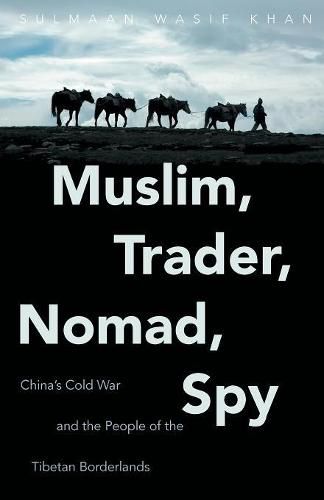Muslim, Trader, Nomad, Spy: China's Cold War and the People of the Tibetan Borderlands
Sulmaan Wasif Khan

Muslim, Trader, Nomad, Spy: China’s Cold War and the People of the Tibetan Borderlands
Sulmaan Wasif Khan
In 1959, the Dalai Lama fled Lhasa, leaving the People’s Republic of China with a crisis on its Tibetan frontier. Sulmaan Wasif Khan tells the story of the PRC’s response to that crisis and, in doing so, brings to life an extraordinary cast of characters: Chinese diplomats appalled by sky burials, Guomindang spies working with Tibetans in Nepal, traders carrying salt across the Himalayas, and Tibetan Muslims rioting in Lhasa.
What Chinese policymakers confronted in Tibet, Khan argues, was not a
third world
but a
fourth world
problem: Beijing was dealing with peoples whose ways were defined by statelessness. As it sought to tighten control over the restive borderlands, Mao’s China moved from a lighter hand to a harder, heavier imperial structure. That change triggered long-lasting shifts in Chinese foreign policy. Moving from capital cities to far-flung mountain villages, from top diplomats to nomads crossing disputed boundaries in search of pasture, this book shows Cold War China as it has never been seen before and reveals the deep influence of the Tibetan crisis on the political fabric of present-day China.
This item is not currently in-stock. It can be ordered online and is expected to ship in approx 2 weeks
Our stock data is updated periodically, and availability may change throughout the day for in-demand items. Please call the relevant shop for the most current stock information. Prices are subject to change without notice.
Sign in or become a Readings Member to add this title to a wishlist.


